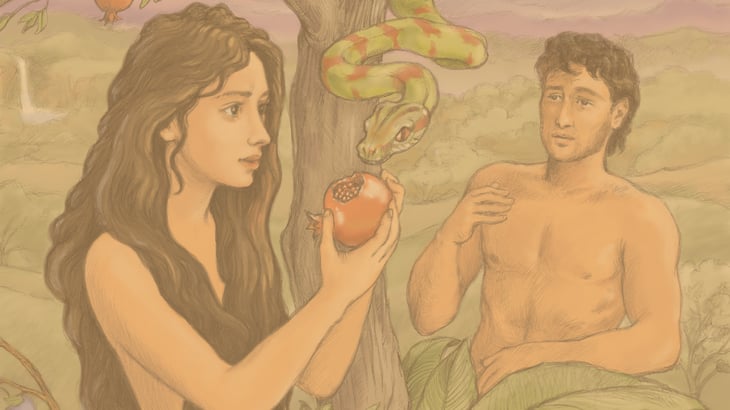Theology of Education: Equipped to Serve
“What is your theology of education?”
It’s a question I ask candidates during those infrequent moments I find myself on an interview committee. I challenge you, dear reader, to stop for a moment and ponder that question before continuing. Go ahead … I’ll wait.
Applying the Ten Commandments: The Second Table
What is it about the fact that once a person says “don’t do [insert action],” it’s like every fiber of your being all of a sudden wants to do that action? Our family recently received a children’s story called Don’t Push the Button! that seeks to engage that familiar feeling. When the reader does give in and push the button, all kinds of silliness ensues.
Teaching Jesus in the Old Testament: Genesis 3
To get the most out of Genesis 3, it is important to recognize what happens prior to the events of this chapter. In the beginning, God created the heavens and the earth. Then God created light with a mere word. He followed with the creation of the lights in the heavens, plants, and animals. He topped this creation with Adam, formed of the dust. God made man in His image and breathed life into him, both physical and eternal. Adam was His greatest creation. Because Adam did not have a suitable partner, God created Eve using a rib from Adam’s side. Adam and Eve were perfect for each other. Despite all these blessings, Adam and Eve listened to the serpent. They chose of their own free will to disobey God.
The Power of a Pause
For most of us, the last week marked a painful anniversary. There has been a meme going around different social media sites stating that “last year this time was our last normal week and no one knew it.” This is a fitting statement as in the United States we are coming up on the one-year anniversary of how the pandemic’s formal arrival has shifted our lives long-term.
The Reluctant Sunday School Teacher
I have a confession to make. I was not looking forward to teaching Sunday School this year, and on some Sundays I still trudge out the door instead of merrily skipping to teach. I had numerous reasons for my lack of enthusiasm. We are living in a pandemic, which means I would be donning a mask. I have four kids with whom I had just come off of distance learning. I had my fill of teaching in any capacity. Spending more time teaching was not on my to-do list. I didn’t want to give up my time in adult Bible study. I love asking questions and listening to the questions others ask.
Applying the Ten Commandments: The First Table
The Ten Commandments were given to us by God and recorded for us in Exodus 20. Martin Luther wrote explanations to those commandments that have been so helpful that many still work to memorize them today, several hundred years after they were written.
Teaching Jesus in the Old Testament: Exodus 12
The importance of the blood on the doorpost and lintel likely “passed over” the Israelites the night before the Lord freed them from centuries of slavery under Pharaoh. Being of desperate mind, we can guess they regarded the act as nothing more than a divine hoop through which to jump to reach liberty and safety. Yes, God did intend the physical, present liberation of His chosen people. Yet in doing so, He inaugurated a process that would culminate at the death of the Lamb and be effectual at every baptism. Thanks to the work of the Holy Spirit, we connect the doorpost to the cross, and both to the baptismal font. The themes of provision, sacrifice, liberty, and restoration tie all three together.
Your Students Are Valuable to God
Recently, some of my students asked me a question I’ve heard dozens of times since I began teaching. Perhaps it was because of the circumstances driving the question or perhaps it was because I’d already had the spark of an idea for this blog post—regardless, I answered their question differently than I have before.
God’s Law Is Good
Red Light, Green Light! It’s a classic children’s game right up there with Duck, Duck, Goose (or dare I say… Duck, Duck, Gray Duck?) and Red Rover, Red Rover. It’s amazing what fun can be had simply by saying the words “red light” and “green light.” The whole game is literally letting children walk on green and stop on red. There are variations of having your back turned on green and suddenly turning around on red to try and catch those that get too close, but the gist is all the same.
Celebrating Black History Month in a Christian Classroom
A year of changes brings a year of adaptations. How blessed we are to serve our God, who is unchanged in His love, care, and provision for us. He even provides ways for us to spread His love and care to others through loving our neighbors intentionally and consistently in various contexts. As Sunday School teachers, classroom teachers, youth leaders, and children’s ministry champions, we have the chance to engage cross-culturally with our students and young people, while adding richly to our own cultures, in response to the gift of the Gospel of Jesus Christ.























